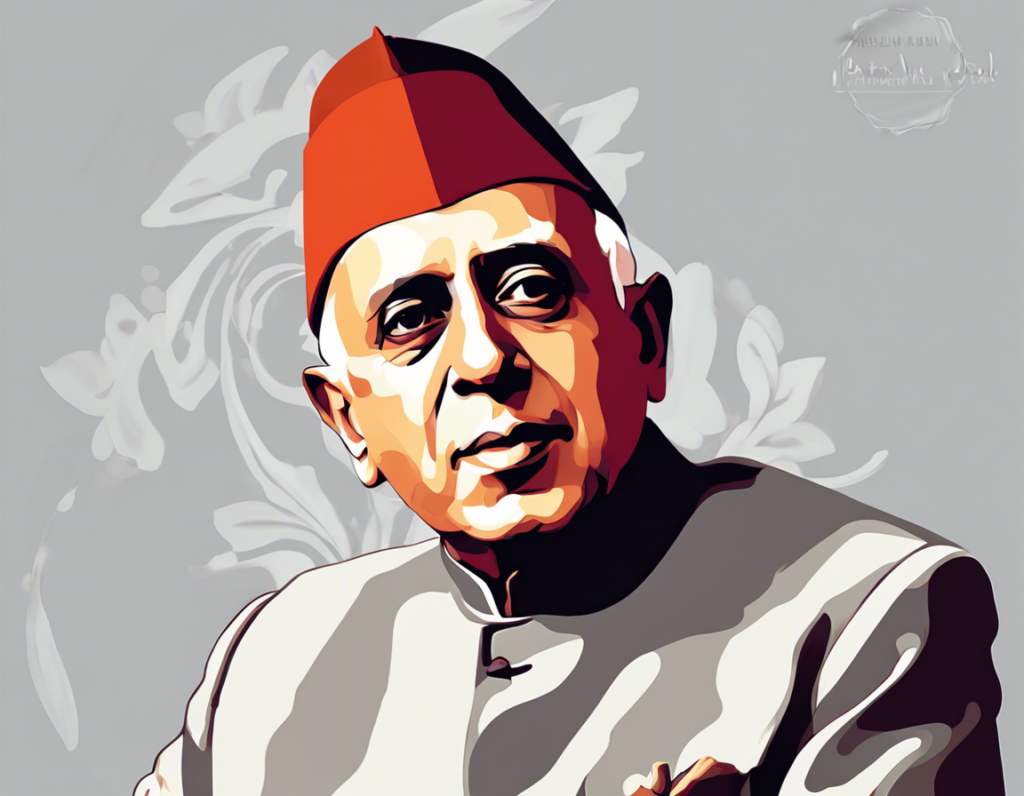Influential Leadership: Pandit Jawaharlal Nehru’s Legacy
Pandit Jawaharlal Nehru, the first Prime Minister of India, is often remembered not just for his role in the country’s independence movement but also for his legacy as an influential leader. Nehru’s vision, charisma, and progressive policies shaped the trajectory of modern India and left an indelible mark on the country’s political landscape. In this article, we delve into the key aspects of Nehru’s leadership style, his contributions to nation-building, and the enduring lessons that leaders can glean from his legacy.
1. Early Life and Political Journey
Jawaharlal Nehru was born on November 14, 1889, into a wealthy Kashmiri Brahmin family. Educated in England, Nehru was exposed to liberal and socialist ideologies that would later influence his political beliefs. Upon his return to India, he became associated with the Indian National Congress and played a pivotal role in the struggle for independence alongside Mahatma Gandhi.
2. Vision for a Modern India
Nehru envisioned a socialist and secular India that prioritized democracy, economic development, and social justice. His vision was encapsulated in the idea of a “tryst with destiny,” articulated in his famous speech on the eve of India’s independence. Nehru believed in harnessing science and technology for the nation’s progress, leading to the establishment of institutions like the Indian Institutes of Technology (IITs) and the Indian Space Research Organisation (ISRO).
3. Progressive Policies
As Prime Minister, Nehru implemented a series of progressive policies aimed at nation-building and social welfare. The Five-Year Plans focused on industrialization, agriculture, and infrastructure development. Nehru also championed land reforms to address rural poverty and advocated for women’s rights and universal education.
4. Non-Aligned Movement
Nehru played a key role in shaping India’s foreign policy through the formation of the Non-Aligned Movement (NAM). This stance of non-alignment during the Cold War era allowed India to maintain autonomy in international affairs and advocate for decolonization and global peace.
5. Legacy and Relevance Today
Nehru’s legacy continues to resonate in contemporary India. His emphasis on democracy, pluralism, and secularism remains paramount in a diverse and complex society. However, Nehru’s legacy has also been a subject of debate, with critics pointing to his centralization of power and economic policies that some argue hindered India’s growth.
6. Leadership Lessons from Nehru
- Visionary Leadership: Nehru exemplified the importance of having a clear and inclusive vision for the nation’s future.
- Progressive Policies: Leaders can learn from Nehru’s focus on social welfare, education, and industrial development.
- International Diplomacy: Nehru’s adept handling of foreign relations showcases the significance of a balanced and independent foreign policy.
- Resilience and Patience: Nehru’s long struggle for independence demonstrates the value of perseverance in the face of challenges.
Frequently Asked Questions (FAQs)
Q1: What were Nehru’s major contributions to India’s development?
A1: Nehru’s major contributions include the promotion of secularism, democracy, economic development through the Five-Year Plans, and the establishment of key scientific institutions.
Q2: How did Nehru impact India’s foreign relations?
A2: Nehru’s policy of non-alignment and advocacy for decolonization shaped India’s independent foreign policy stance and global reputation.
Q3: What was Nehru’s role in the Indian independence movement?
A3: Nehru was a key figure in the Indian National Congress and played a significant role in mobilizing support for independence through non-violent resistance.
Q4: What were Nehru’s views on democracy and secularism?
A4: Nehru strongly believed in the principles of democracy, secularism, and social justice as the foundations of a modern Indian state.
Q5: How did Nehru’s economic policies impact India’s growth?
A5: Nehru’s economic policies emphasized state-led industrialization and social welfare, laying the foundation for India’s mixed economy.
In conclusion, Pandit Jawaharlal Nehru’s legacy as a leader, statesman, and visionary continues to inspire generations of Indians and leaders across the globe. His commitment to democracy, secularism, and social progress set the tone for India’s post-independence journey and offers invaluable lessons for leadership in the 21st century.
